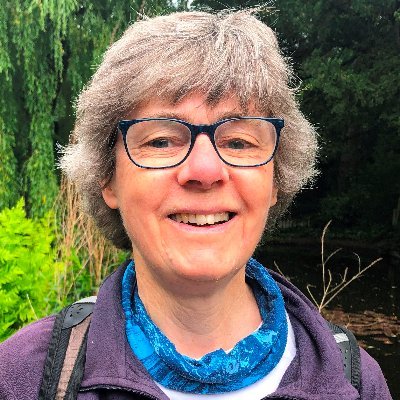
Hugh Craddock
@PannageMan
Followers
330
Following
902
Media
62
Statuses
934
Living in Surrey and working for the Open Spaces Society. Married with two horses. Now on Bluesky @pannageman
Surrey
Joined April 2012
Wild camping <is> lawful on Dartmoor: Supreme Court has the final word. S.10 of the Dartmoor Commons Act 1985 does confer a right to wild camp, subject to compliance with byelaws and restrictions. Blog about judgment: Wild about camping https://t.co/tRja8TqD87
0
3
7
Corner Drove & Brazen Street today confirmed added to definitive map as restricted byways on historical evidence (including 25 years of LA maintenance) at Ware in east Kent, following apps by BHS in 2019. Intersect here: https://t.co/eg0lO9epqx Background: https://t.co/0AOQBgzzUT
0
0
5
It was John Prescott who made the Countryside and Rights of Way Act 2000 happen. Michael Meacher was committed to the new statutory access rights in Part I — but only JP had the political levers to pull in no.10 to overcome its instinctive aversion to taking on the landowners.
I am grateful to the late John Prescott for two things in particular, his announcement 29 Sep 1999 that @NewForestNPA & @sdnpa would be national parks, and his leadership on the Countryside & Rights of Way Act with greater freedom to roam @Campaign4Parks @RamblersGB
5
4
18
And that's it. One big concern: there is still this idea that the Dartmoor right is exercised on fields adjoining the Darwalls' farmhouse. L Rose spoke of repeated camping, TM of the landowner unloading. None of this should matter on remote upland commons. ENDS
4
1
11
TM concludes on byelaws, saying they came too late. He says DNPA theory is that bad camping is prohibited by Sch.2, but Sch.2 has nothing to say about that. The 1949 Act also contained controls for landowners, but still offered compensation.
2
0
4
On implementing Royal Commission report, TM says that the 1985 Act was delivering the package, which did not confer as full a right as it could have had under s.60 of the 1949 Act.
1
0
4
TM asked why should a walker be entitled to camp overnight: why not ask for permission, or take your chances—what's the problem, it wasn't a problem for centuries?
1
0
4
TM asks what do the words say? 'On foot and on horseback'—why don't they mean what they say? Why should they not be given their literal meaning?
1
0
3
TM says what about the right of a landowner to ask a camper to move on, to unload something [unload what?? This is remote, high commons]. Landowners also have a duty to maintain commons designated SSSIs [so it's their fault they're not performing then, not the commoners?]
1
0
4
TM says the authorities show that private rights must not be destroyed without clear intention. Any other construction of the statute must be preferred. Authorities say 'words [which] are clear and unambiguous and which do not produce absurdity' must prevail.
1
0
4
TM KC rises again to close. What was Parliament being asked to do? Was Parliament entitled to trust what it was being told? Hansard is in any case eligible to help identify the statutory mischief.
1
0
3
VS suggests Steen had never had a conversation on camping, and so was never in a position to make an authoritative statement. VS compares with David Clark (then MP) who had referred to right as general right of access. Warns against Steen's witness statement 40 years after event.
1
0
3
L Sales says Steen was explaining Bill to the House. VS says the promoter, Devon CC, and not Steen, was involved in opposed Bill committee. L Rose says this goes to the heart of what role Parliament had in shaping the legislation.
1
0
3
Questions from justices about whether Anthony Steen was 'promoter' of Bill. VS says he wasn't involved in background, not involved in drafting. He was local MP who moved Second Reading. Lady Rose questions if Steen <had> said camping was not allowed.
1
0
5
RH hands over to Vivienne Sedgley on Pepper v Hart [counsel on both sides are pressing home their cases here, notwithstanding Lord Reed's opening steer]. VS emphasises that the Parly materials must deal with the very question before the court. They don't.
1
0
3
On compensation, RH says there was no compensation under the Countryside and Rights of Way Act 2000, and although it did not include camping, it did not include the measures favourable to landowners contained in the 1985 Act.
1
0
3
Lord Stephens asks about whether the DNPA actually fulfils its side of the pact: to enforce against abuses. RH says where camping is abusive, DNPA and landowners retain a right to act against it.
1
0
3
Lady Rose asked about a possible surge in camping, with different people camping on land every night. What can the landowner do? [But this is wild, unoccupied land, invariably far from where anyone lives, and which is not cultivated.]
1
0
3
Lady Rose suggests that the 1985 Act now raises the possibility of lots of people camping on the commons. RH said the former right to enforce against it was of no practical utility. Lord Sales says it was a legal right nonetheless. RH says it was academic.
1
0
3
RH presents arguments why the s.10(1) right does not interfere with landowners' property rights, or if it does, effect is trivial. L Stephens suggests there has been interference, but RH doesn't accept this. There has been no loss of control by landowners. L Stephens disagrees.
1
0
3

